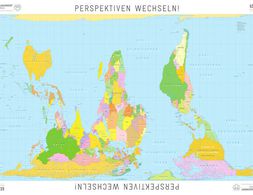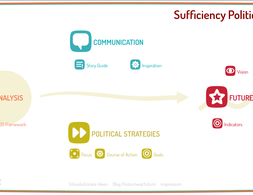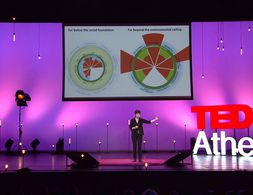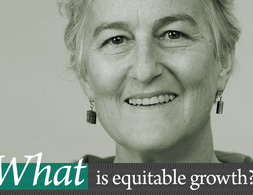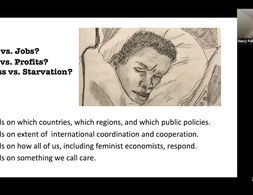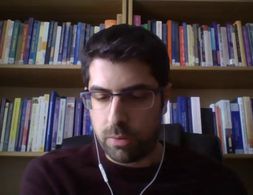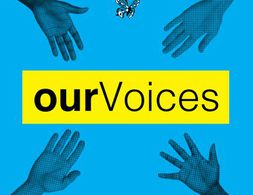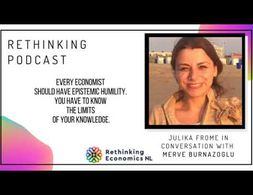604 Ergebnisse
In both economics textbooks and public perceptions central banks are a fact of life. On the wall of my A-level economics classroom there was the Will Rogers quote “there have been three great inventions since the beginning of time: fire, the wheel, and central banking”, summarising how many economists view the institution. There is a widespread belief that there is something different about money which calls for a central authority to manage its operation, a view shared even by staunch free marketeers such as Milton Friedman. This belief is not without justification, since money underpins every transaction in a way that apples do not, but we should always be careful not to take existing institutions for granted and central banking is no exception. In this post I will look at the idea of private or free banking, where banks compete (and cooperate) to issue their own currency.
Die ökonomische Theorie hat mit Moral wenig oder gar nichts zu tun. In den gängigen Lehrbüchern der Mikroökonomie findet sich in den Stichwortverzeichnissen kein Eintrag zu Moral oder Ethik. Die Studierenden lernen über die Wirtschaft nachzudenken, aber sie lernen dabei nicht, systematisch über ethische Fragen zu reflektieren. Nach der neoklassischen Lehre, wie sie in den Lehrbüchern präsentiert wird, weist wirtschaftliches Handeln nicht grundsätzlich moralische Aspekte auf.
Oft werden Universitäten mit neutraler Wissenschaft verbunden und das von Dozierenden vermittelte Wissen als Abbildung der Realität wahrgenommen. Nur selten ist es Gegenstand kritischer Auseinandersetzungen. Wissenschaft findet jedoch in keinem neutralen Raum statt, sondern ist von Machtstrukturen und somit auch oft von diskriminierenden Denkweisen geprägt. Genau hier setzt unser Projekt an, mit dem wir einen Beitrag zur kritischen, interdisziplinären Auseinandersetzung mit Rassifizierung und Diskriminierung an der Universität Bayreuth und darüber hinaus leisten wollen. Unser Interesse am Thema Rassifizierung im Kontext universitärer Lehre und Forschung entstammt dabei der kritischen Auseinandersetzung mit den Lehrinhalten der Vorlesung „Ökonomik der Entwicklungsländer“ von Prof. Dr. Martin Leschke sowie mit dem begleitenden Lehrbuch „Ökonomik der Entwicklung – Eine Einführung aus institutionenökonomischer Sicht“. Als uns Themen und Begriffe auffielen, die unserer Einschätzung nach in ihrer Verwendung nicht dem aktuellen Umgang mit postkolonialen Machtverhältnissen und Eurozentrismus entsprachen, kam uns die Idee, eine kritische Begleitschrift zu besagtem Lehrbuch zu verfassen.
This course is designed to provide students with an understanding of work-related gender issues and to enable students to analyze the issues using the tools of economics.
This syllabus provides an overview of the contents of the course "Understanding Economic Models" at the University of Helsinki.
Der Fokus der feministische Ökonomik liegt auf dem wechselseitigen Zusammenhang von Geschlechterverhältnissen und Ökonomie. Sie rückt insbesondere Care und die teils nicht marktvermittelte Reproduktionssphäre in das Blickfeld.
Der Fokus der Evolutorischen Ökonomik liegt auf der Erklärung wirtschaftlichen Wandels. Analysiert werden Wandlungsprozesse, wie Wirtschaftswachstum, Innovationen, Strukturwandel, technologischen Wandel, institutionellen Wandel oder allgemein die wirtschaftliche Entwicklung.
Eine erfolgreiche Wirtschaftstransformation hängt von einer Veränderung der ökonomischen Praktiken der Akteure ab. Die „Spirale transformativen Lernens“ identifiziert, welche Fähigkeiten dafür entscheidend sind.
Die alten kapitalistischen Zentren, aber auch die großen Schwellenländer befinden sich inmitten eines epochalen Umbruchs. Politikansätze, die das Problem der Klimaungerechtigkeit ignorieren, werden heftige Widerstände gegen die sozial-ökologische Transformation auslösen. Ein Beitrag von Klaus Dörre.
Economist and 2020 Balzan Prize winner for Environmental Challenges: Responses from the Social Sciences and Humanities, Joan Martínez Alier, speaks on the importance of ecological economics and its timeliness around the 2007/2008 global financial crisis. He speaks on the importance of building the field of ecological economics “from the ground up” through praxis.
Maria Nikolaidi on how Minsky’s theory has been modelled over past decades and how one can use these models in order to analyse contemporary issues such as financial fragility and financial instability caused by climate change.
The Sufficiency Policy Map is an online tool for initiatives, political actors, organisations and individuals. It provides recommendations, strategies and communication tools for realizing projects and policy around the topic sufficiency. Sufficiency projects have the aim to reduce one's own ecological footprint.
This talk was given at a local TEDx event, produced independently of the TED Conferences. Economic theory is centuries out of date and that's a disaster for ...
What is “equitable growth” and how do we measure it? A better understanding of equitable growth—and how to measure it—can improve our understanding, inform decisions and lead to better outcomes for all.
How does fiscal policy work and which dimensions have to be considered? In this short text, you can learn about the difficulty of juggling different dimensions and which optimal rules exist at the micro and macro level.
Planet Money and The Indicator aim to explain current economic events in an easy, fun and accessible manner.
To prevent the coronavirus shock to demand precipitating a long-lasting depression, government needs to become short-term payer of last resort.
This is an online panel and discussion on the ongoing and potential gendered impacts of COVID-19 organized by the International Association of Feminist Economics (IAFFE).
Banner and Pastor debunk granted assumptions of the neoclassical theory, such as self-interested human behavior, the necessity of inequality and growth, to pull the threads between the new possible foundations of our society, "prosperity, security and community".
This is webinar series organized by the SOAS Open Economic Forum and the SOAS Economics Department with speakers from the same department as well as other academic figures.
Since the 1980s, the financial sector and its role have increased significantly. This development is often referred to as financialization. Authors working in the heterodox tradition have raised the question whether the changing role of finance manifests a new era in the history of capitalism. The present article first provides some general discussion on the term financialization and presents some stylized facts which highlight the rise of finance. Then, it proceeds by briefly reviewing the main arguments in the Marxian framework that proposedly lead to crisis. Next, two schools of thought in the Marxian tradition are reviewed which consider financialization as the latest stage of capitalism. They highlight the contradictions imposed by financialization that disrupt the growth process and also stress the fragilities imposed by the new growth regime. The two approaches introduced here are the Social Structure of Accumulation Theory and Monthly Review School. The subsequent part proceeds with the Post-Keynesian theory, first introducing potential destabilizing factors before discussing financialization and the finance-led growth regime. The last section provides a comparative summary. While the basic narrative in all approaches considered here is quite similar, major differences stem from the relationship between neoliberalism and financialization and, moreover, from the question of whether financialization can be considered cause or effect.
This text summarizes the content of the 2018 Nobel Prize winner W. Nordhaus. It is extended by some critical perspectives on this topic. The short dossier gives an overview of the most important texts we have read in the climate economics reading group.
This paper presents an overview of different models which explain financial crises, with the aim of understanding economic developments during and possibly after the Great Recession. In the first part approaches based on efficient markets and rational expectations hypotheses are analyzed, which however do not give any explanation for the occurrence of financial crises and thus cannot suggest any remedies for the present situation. A broad range of theoretical approaches analyzing financial crises from a medium term perspective is then discussed. Within this group we focused on the insights of Marx, Schumpeter, Wicksell, Hayek, Fisher, Keynes, Minsky, and Kindleberger. Subsequently the contributions of the Regulation School, the approach of Social Structures of Accumulation and Post-Keynesian approach, which focus on long-term developments and regime shifts in capitalist development, are presented. International approaches to finance and financial crises are integrated into the analyses. We address the issue of relevance of all these theories for the present crisis and draw some policy implications. The paper has the aim to find out to which extent the different approaches are able to explain the Great Recession, what visions they develop about future development of capitalism and to which extent these different approaches can be synthesized.
In this podcast, Laura Basu focuses on how capitalist markets and nation-states perpetuate structural racism.
Are there any limits to government spending? In times of war, particularly? And what about the aftermath of such special times when treasuries seemingly feel unshackled from any rules? And are those times really any special? That is what this paper is about.
Exploring Economics, an open-source e-learning platform, giving you the opportunity to discover & study a variety of economic theories, topics, and methods.
This article examines the spread of financialization in Germany before the financial crisis. It provides an up-to date overview on the literature on financialization and reviews which of the phenomena typically associated with financialization have emerged in Germany. In particular, the article aims to clarify how the prevailing institutional structure and its changes had contributed to or had countervailed the spread of financialization and how it had shaped the specific German variant of financialization. For this end, it combines the rich literature on Germany's institutional structure with the more macroeconomic oriented literature on financializaton. With the combination of those different perspectives the article sheds light on the reasons for the spread of financialization and the specific forms it has taken in Germany.
In this paper the main developments in post-Keynesian macroeconomics since the mid- 1990s will be reviewed. For this purpose the main differences between heterodox economics in general, including post-Keynesian economics, and orthodox economics will be reiterated and an overview over the strands of post-Keynesian economics, their commonalities and developments since the 1930s will be outlined. This will provide the grounds for touching upon three important areas of development and progress of post-Keynesian macroeconomics since the mid-1990s: first, the integration of distribution issues and distributional conflict into short- and long-run macroeconomics, both in theoretical and in empirical/applied works; second, the integrated analysis of money, finance and macroeconomics and its application to changing institutional and historical circumstances, like the process of financialisation; and third, the development of full-blown macroeconomic models, providing alternatives to the mainstream 'New Consensus Model' (NCM), and allowing to derive a full macroeconomic policy mix as a more convincing alternative to the one implied and proposed by the mainstream NCM, which has desperately failed in the face of the recent crises.
Rethinking Economics NL explores every month together with a new host the field of economics from a different perspective.
Industrial policy has been a central part of policy prescription by many heterodox schools arguably since mercantilism, but the theories behind it and types of policy advocated for have evolved over time. Recently some neoclassical economists have shown renewed interest in it, but is this mainstream acceptance a step back or a step forward from earlier heterodox ideas?
The background for the present elaboration is twofold firstly the ongoing debate about whether the Marxian theory of value has been damaged or even destroyed by the alleged impossibility of solving the transformation problem and secondly the fact that almost all of the later economic manuscripts of Marx are now …
How exactly are persisting social inequalities and the operations of modern finance connected? Adam Tooze provides a detailed answer to a still relevant problem by focusing on the Great Financial Crisis and the role of the finance industry in the USA.
Wir nutzen Cookies. Klicke auf "Akzeptieren" um uns dabei zu helfen, Exploring Economics immer besser zu machen!



